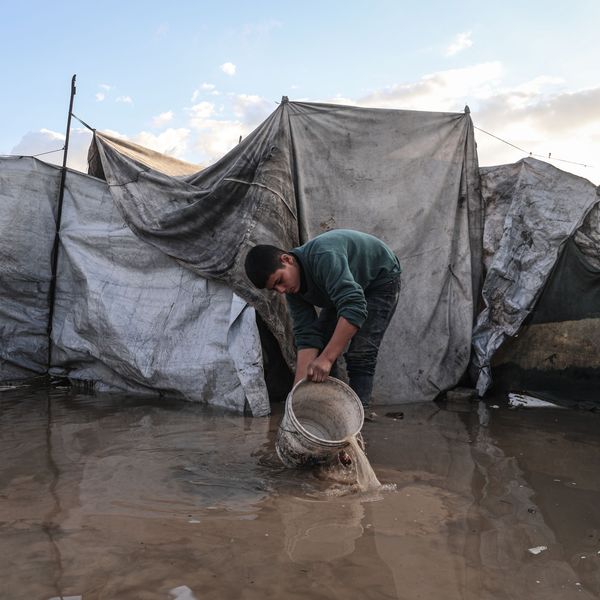The humanitarian aid group Doctors Without Borders (MSF) slammed the United Nations Mission in South Sudan on Wednesday for refusing to improve the conditions and "chances of survival" for 21,000 displaced people living at a flooded UN base in the capital Juba, where they are subject to dangerous conditions, diseases, and "potential epidemics."
In a strongly worded condemnation, MSF accused the UN of a "shocking display of indifference" towards displaced people living at the neglected Tomping camp.
"The displaced people in the Tomping camp are crowded into low-lying parts of a UN compound prone to flooding," reads the MSF statement. "Diarrheal diseases, respiratory infections, and skin diseases already account for more than 60 percent of the cases seen at MSF's clinic in the camp, before the rainy season has begun in earnest."
According to the statement, 150 latrines at the camp collapsed during the season's first rainfall, "their contents mixing with floodwater."
"The UNMISS decision not to improve conditions in Tomping is shameful," said Carolina Lopez, MSF emergency coordinator. "People are living in natural drainage channels because there is no other space. And the rains, which will last the better part of six months, are becoming heavier. If nothing is done right now, the already horrific consequences could become fatal."
Yet, UNMISS has repeatedly ignored pleas to improve conditions at the camp or "expand into available non-flooded space within the UN compound," charges MSF. This is despite the early April admission by Hilde Johnson, the head of UNMISS, that the Tomping camp is "at imminent risk of turning into a death trap."
MSF's condemnation is particularly strong given the charity's history of collaboration with the UN in numerous countries.
Hundreds of thousands of people have been displaced by the conflict in South Sudan, and tens of thousands of them have sought refuge at UNMISS camps. According to UN officials, one third of the population of South Sudan is at immediate risk of starvation.
MSF charges, "Tomping is only the most visible example of the widespread unmet humanitarian needs in South Sudan."
_____________________


